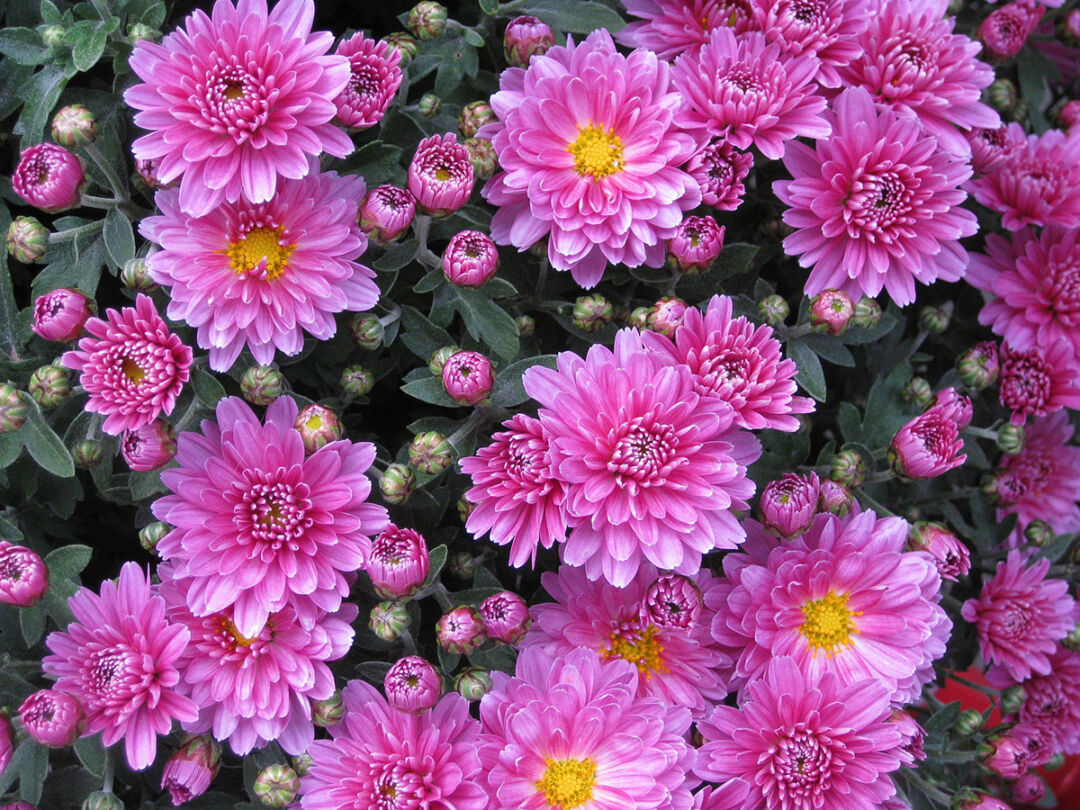
By Cecilia Seppia. Vatican News
In Sicily, Paola Gurrieri, together with her brothers, heads La Mediterranea, a leader in the cultivation of chrysanthemums. The company is the first in Italy to adopt water vapor soil sterilization and to have adopted environmental and social sustainability strategies such as free preventative health screenings for employees and providing housing for foreign workers who, like Italians, are hired on an equal-opportunity basis.
A degree in Philosophy from the University of Catania in 1999, a career launched as a teacher, a plan to leave for Rome where she would finally become a tenured teacher at the Albert Einstein High School, and then the turning point: a few years ago, 51 year old Paola Gurrieri unexpectedly decided to go work together with her father Salvatore and her two brothers, Francesco and Piero, in the family business “La Mediterranea Srl,” a leader in the cultivation of chrysanthemums.
Accustomed to musing about Kant, Hegel and Schopenhauer, and to reflecting on profound existential questions, on the meaning of life, knowledge, mindfulness and language, Paola suddenly found herself dealing with numbers, turnovers, production, mortgages, contracts, marketing. A “blank slate” to quote John Locke – at any rate, quite a Copernican revolution. But Paola accepted the challenge, rolled up her sleeves, studied new things, and became passionate about the idea of a company that as Adriano Olivetti said, “cannot look only at the profit index, it must distribute wealth, culture, services, democracy.” In other words, a company built for man, and not a man made for the company, a company that takes care of its employees and the environment. Following in the footsteps of her father Salvatore, Paola has set herself this goal and pursues it to this day.

No profit without ethics
But how does one manage to do this in a world dominated by money and goods? Paola does not offer a philosophical recipe, far from it. She tells me about the “social sustainability” of relationships built on respect, sharing, and kind greetings like “hello, how are you?” that a boss rarely addresses to his subordinates.
She tells me about the cancer prevention and screening campaigns that, in agreement with the National Health Center facilities, she can provide to her employees free of charge. Meetings are also organized with ministers, the bishop of Ragusa and distinguished guests, to promote dialogue and understanding and to bridge the gap of diversity and inequality.
She has arranged artistic-cultural events at La Mediterranea with internationally renowned artists, such as jazz musician Francesco Cafiso, who had played for former U.S. President Barack Obama and has entertained immense crowds. Invited by Paola, he did not hesitate to perform for the company’s staff too. And lastly, the company has created housing for foreign employees, thus helping them to settle down and integrate into the Italian social fabric.
Caring vs. taking advantage
I interviewed Paola on August 30, the very day of the anniversary of her father’s death, and suddenly everything seemed connected. She considered it a kind of “God-incidence,” as well as a tribute to the man who made this whole enterprise possible.
Visibly moved, her words catching in her throat, Paola said she and her brothers “inherited from dad a respect for others, the principle of equality, equality. And the desire to improve not just ourselves but also our territory that has suffered so much. People, as well as the environment, should be cherished, not exploited, that is why we consider environmental and social sustainability to be strongly interconnected. It is time to stop plundering and exploiting the environment; it is time for a new alliance.”
Paola Gurrieri’s commitment to people and to improving the environment earned her the 2019 “Entrepreneurs for the Common Good” Award during the Festival of the Social Doctrine of the Church in Verona, Italy. Describing the motivations for which the award was presented, Monsignor Giuseppe Schillaci, then bishop of Lamezia Terme, said it was to recognize “those who have been able to look beyond the visible.
Those who, in a chrysanthemum, saw the potential to create a great company and, in the enterprise, the potential to restore a perspective to their territory. Environmental protection, too, with constant investment in low-impact technologies and the decision to ban the use of chemical fumigants means gazing at a new horizon – for the benefit of those who, after us, will be able to enjoy the earth of which we are only the custodians.”
“That day,” Paola says, “my brothers and I were a bit confused and uncertain; Dad had recently died, but all three of us felt we understood: we were going in the right direction, towards an economy of fraternity. Only ethical businesses are and will be able to move forward in the midst of the many crises we are experiencing. We, as entrepreneurs, feel perfectly in line with what Pope Francis says: the need to forge ties, connections that are not justified by mere profit but that contemplate the good of our children and our children’s children, because there is not much time left.”